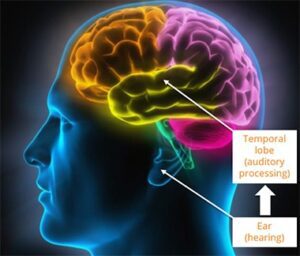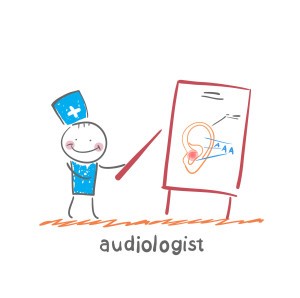By: Lalsa Perepa, Doctor of Audiology
What is APD?
Auditory Processing Disorder (APD) is when someone has difficulty processing or interpreting sounds by the brain, despite having normal hearing. In short, it can be simply defined as a problem with “what the brain does” with “what it hears”.
People with auditory processing disorder difficulties often have normal hearing sensitivity but their brain struggles to interpret, organize, and remember what is said, especially in background noise. Children with auditory processing problems are weak in some basic skills for decoding and remembering what they hear. They often miss, or misunderstand, information that is conveyed orally, in instruction or conversation.
What Causes APD?
In some cases, a head injury or chronic ear infections may be possible causes for APD; however, in many cases, there is no known cause.
Common Signs and Behaviour
An adult or child with APD may exhibit difficulty with auditory processing in the following ways:
- Poor listening skills
- Difficulty following oral instructions or classroom discussions
- Frequently say “huh?” or “what?”
- Difficulty with phonics or letter-sound correspondences, sound blending or segmentation
- Difficulty decoding unfamiliar words
- Poor spelling
- Slow fluency of reading
- Poor reading comprehension
- Difficulty understanding in the presence of background noise
- Poor attention, daydreaming, high distractibility (may seem like an attention disorder)
- Give slow or delayed responses to oral questions
- May be prone to behavior problems due to frustration or boredom (inability to follow the class)
- Avoidance of reading or other difficult tasks
APD Screening
If an adult or a child exhibits any of the signs and symptoms, it would be helpful to screen for APD in order to rule out the need for a comprehensive diagnostic assessment. Screening would help in identifying those for whom a comprehensive auditory processing evaluation is warranted, while, at the same time reduces the number of inappropriate referrals.
The preliminary screening could be done by completing a screening questionnaire; please contact us to obtain your copy.
APD Assessment
We perform a detailed assessment of auditory processing function. The entire testing process usually takes up to 1 hour. Since auditory processing difficulties and symptoms vary widely from one person to another and also across age groups, you will receive a complete assessment program which includes a series of tests designed to evaluate auditory processing skills in different areas. This assessment will take into account your responses from the screening questionnaire, along with a personal consultation and will be performed by an audiologist who has received specialized training in assessing and treating APD.
APD Therapy
Following the APD assessment, the audiologist will discuss therapy procedures for improving specific auditory processing skills. These procedures involve various kinds of activities like phoneme recognition and phonemic synthesis training, training to improve word recognition in noisy background, improving short-term auditory memory, etc. We would also enroll candidates for therapy into computer-based training programs for self-practice at home.
The cost of APD therapy is covered by some insurance plans.
How Can We Help Children With APD?
- To help children who have APD, it is important to understand the problems associated with APD and how they affect daily activity, response to situations and performance of the child. The following strategies can be used either at home or at school to ease some of the difficulties associated with APD. These strategies can prove greatly beneficial when used together with APD therapy.
- Identify and acknowledge that the child is facing auditory difficulties – it must be explained to the child as early as possible that their trouble with understanding words is not their fault and encourage them through positive feedback.
- Provide the child with a quiet environment with reduced background noise at home and at school to prevent distraction from listening tasks. In the classroom, the child should be seated away from doors and windows, and closer to the teacher who can observe and help with confusion or distraction.
- Allow the child to do reading and independent work in a quiet room and provide studying aids like assignment pad or recording/replaying device.
Maintain constant eye contact with the child while speaking to keep them engaged in conversation. - Try to provide visual aids to help them understand the spoken part, e.g. written text or pictures that represent the spoken instructions.
- Repeat the first few steps of a series of instructions to ensure that the child understands them properly. Watch for signs of the child being lost or inattentive and keep asking questions to keep the child focused.
- Provide reading assignments and non-auditory material (e.g. presentations, slideshows) before introducing new material during classroom instruction. Inform parents and other support staff in the school about upcoming topics and lessons.
- Allow students with APD to get additional time to complete tasks where spoken instructions are provided.
Contact Us
It is noted that APD involves a completely different procedure for assessment as well as therapy, compared to hearing loss. An Audiologist needs to have obtained very specialized training in order to accurately assess the type and severity of auditory processing disorders and recommend a therapy approach based on individual needs. We are glad that our Audiologist has received this level of APD training and credentials.
To ask any questions, obtain your complimentary copy of APD screening questionnaire or book your assessment, please fill out the following form:





